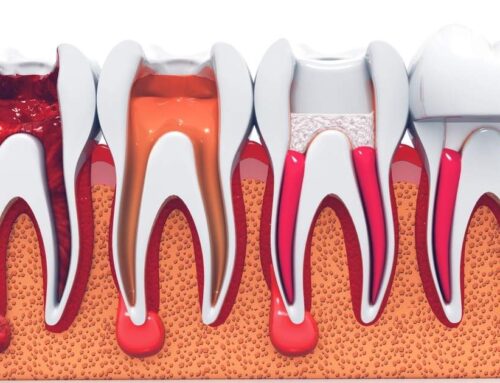Did you know that periodontal diseases are the most common diseases known to mankind? This group of dental diseases includes gingivitis and periodontitis, both of which cause inflammation in the gums. Gingivitis is reversible with good oral hygiene, but periodontitis often leads to tissue destruction, ligament breakdown, and even bone damage. While the disease progresses slowly, the tissue damage is mostly irreversible.
Those suffering from periodontal diseases may not be aware of their diagnosis since pain is not often an initial symptom. Even without pain and discomfort leading patients to seek dental care, moderate periodontitis affects up to 60 percent of adults. Thus, early diagnosis and prevention are of the utmost importance for maintaining oral health.
Multiple risk factors may lead to periodontal diseases, including smoking, nutritional defects, osteoporosis, genetic factors, and even lasting reactions to medications. One such risk that is manageable and sometimes preventable is diabetes. Research demonstrates the risk of developing periodontitis increases by threefold for those already dealing with diabetes due to obesity.
As many cases of obesity and type 2 diabetes may be prevented or managed with a healthy lifestyle and diet, individuals may be able to minimize their risk of periodontal disease by staying fit. Studies have found that insulin resistance, which leads to diabetes, was more likely in individuals with a Body Mass Index (BMI) of 27 or higher. Additional studies have found connections between regular physical activity and minimized risk of periodontitis.
Thus, a “two-way” relationship has been identified between diabetes and periodontal disease. Diabetes increases oral inflammation which leads to gingivitis and potentially periodontitis. Alternately, individuals with periodontal diseases may have an increased chance of developing diabetes, and those with both diagnoses are three times as likely to face kidney failure.
These connections between dental health and overall wellness represent the importance of oral care. Maintaining a clean, healthy mouth can prevent oral inflammation and minimize bacteria in the mouth that may lead to other diagnoses.
To prevent discomfort, pain, and illness, brush and floss your teeth twice each day. Brush your tongue and rinse well to remove remaining bacteria. Schedule regular exams with your dentist and make them aware of any discomfort, pain or inflammation you’re experiencing. It is important to share all concerns with your dentist as gingivitis and periodontitis are often overlooked by individuals and require diagnosis and a treatment plan. Ultimately, oral disease prevention is possible with regular exercise, a healthy diet, daily oral hygiene and regular dental exams.






